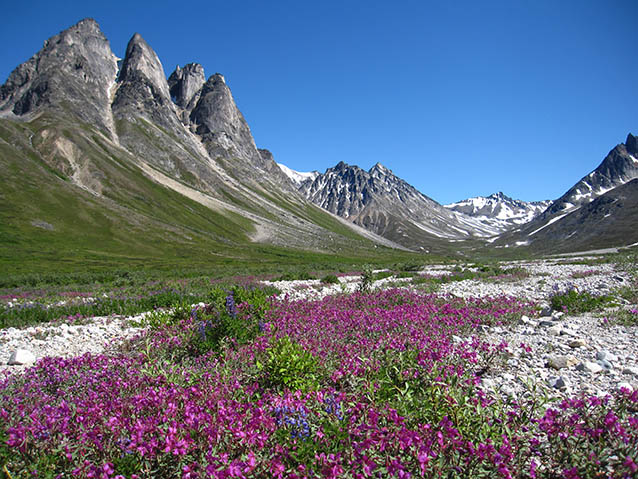The 18th annual Air Quality Awareness Week (AQAW) takes place May 6-10, 2024. This year's theme is "Knowing Your Air." National parks across the country love clean air and work hard to reduce air pollution both inside parks and beyond park boundaries. Check out the resources below and get to know your air!

NPS photo/A. Lindholm
The National Park Service joins other groups and agencies like the Environmental Protection Agency (EPA), National Oceanic and Atmospheric Association, and the Centers for Disease Control and Prevention, to raise awareness about the crucial role of air quality for the health of people and our planet. For more information, visit the EPA's 2024 AQAW toolkit and the National Atmospheric Deposition Program's AQAW 2024 page.
The topics for AQAW 2024 are:
- Monday, May 6 - Wildland Fires and Smoke
- Tuesday, May 7 - Asthma and Your Health
- Wednesday, May 8 - Air Quality and Climate
- Thursday, May 9 - Air Quality and Environmental Justice
- Friday, May 10 - Air, Animals and Plants
Be sure to like and follow us: @NatureNPS on Twitter, NatureNPS on Facebook, and NatureNPS on Instagram. Follow along on social media using #getoutside or #AQAW.
What are national parks doing for cleaner air?
National parks reduce air pollution by making transportation, electrical power, and waste recycling more efficient. For example, Rocky Mountain National Park in Colorado has reduced total energy consumption by 30 percent in the past decade.
The National Park Service monitors air quality conditions in parks and conducts research to better understand the effects of air pollution. Additionally, because most pollution in national parks comes from outside park boundaries, the National Park Service partners with air regulators, developers, agricultural producers, and other stakeholders to reduce air pollution. This benefits clean air and clear views for parks and nearby communities.
What can you do to protect your parks?
Save energy and reduce waste at home, school, work, and while visiting parks. Whenever you use gasoline in a car, or natural gas and electricity for heating, cooling, and light, you contribute to air pollution.
Here are ways to save energy, reduce waste, and save money:
-
Green Your Ride – Combine trips, carpool, ride your bike, or take the bus or park shuttle. Observe speed limits, avoid idling, and maintain your vehicle.
-
Reduce Power – Use CFL or LED light bulbs, and turn things off when not in use.
-
Get Comfortable – Use a programmable thermostat that reduces energy used for heating and cooling.
-
Reduce, Reuse, Recycle – It takes energy to make and sell the products we use. Recycle all materials according to the local recycling program guidelines.
-
Refill Please! – Refill your water bottle instead of buying bottled water.
-
Share Your Story – Tell a friend how you are protecting clean air and clear views in your parks.
Learn more on nps.gov/air. You can see real-time air quality in parks on our Air Quality Webcam Page, and find Live Weather and Air Quality Data for individual parks.
Last updated: April 10, 2024
